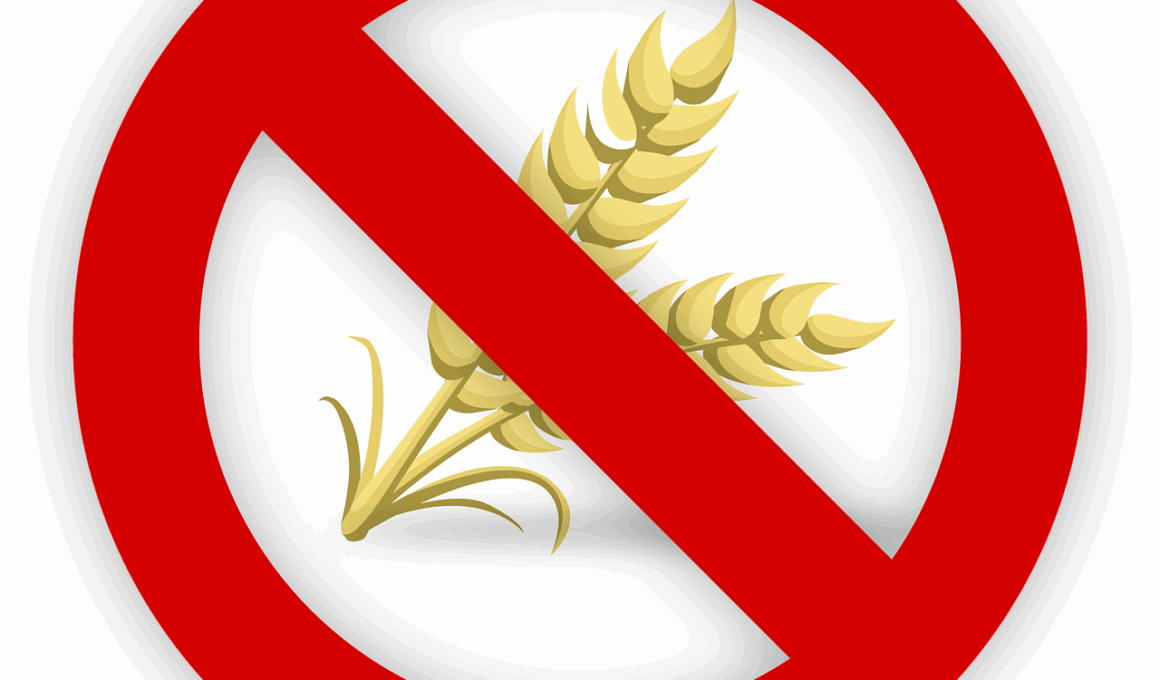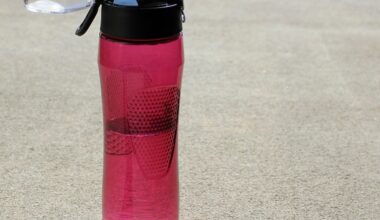CrossFit Nutrition Plans: Foods to Avoid for Maximum Gains
When it comes to maximizing your CrossFit gains, nutrition plays a vital role. It’s essential to understand which foods can sabotage your performance and recovery. First and foremost, processed foods filled with artificial additives should be avoided. These can disrupt your metabolism and hinder muscle recovery. Instead, focus on whole foods that provide your body with the nutrients it needs. High-sugar products are another category that can derail your progress. Sugar leads to insulin spikes, which may contribute to fat accumulation. Instead of candies or sugary beverages, opt for natural sweeteners such as honey or fruits. Unhealthy fats found in fried foods or trans fats in certain snacks can wreak havoc on your health. Emphasize healthy fats found in avocados, nuts, and olive oil. Lastly, be cautious with dairy products, as many athletes experience lactose intolerance. It’s crucial to assess how your body reacts to dairy. By making wiser food choices, you can unlock your potential and achieve greater results in the gym. Keep in mind that nutrition plays just as important a role as your workout regimen. Focus on clean eating for maximum performance.
Another critical aspect of nutrition in CrossFit training is hydration. Consuming the wrong drinks can quickly sabotage your efforts. Sugary drinks, including sodas, hinder both hydration and energy levels. Choose water or electrolytic drinks that help replenish lost fluids. Caffeine can be beneficial in moderation; however, overindulging may lead to energy crashes and dehydration. Certain energy drinks are laden with sugars and other questionable ingredients that can affect your performance. Additionally, alcohol is a significant detractor from your goals. Heavy drinking not only dehydrates but also disrupts your sleep, reducing recovery quality. If you do drink, limit your intake, focusing on moderation. Each person’s tolerance is different, so listen to your body’s signals. For optimal energy, make your pre and post-workout meals substantial. A combination of protein and carbohydrates is essential for muscle recovery. Assess which combinations work best for you, keeping an eye on your body’s reactions. Keep a food diary to track how various foods impact your workout and recovery as well. Monitoring what you consume can be an eye-opening experience.
Understanding Macronutrients and Micronutrients
To maximize your CrossFit performance, it’s crucial to understand the balance between macronutrients and micronutrients. Your macronutrient intake—proteins, fats, and carbohydrates—should reflect your activity levels and training goals. Consuming insufficient protein can lead to muscle breakdown, while excessive carbohydrates without proper activity can store excess energy as fat. Always choose high-quality protein sources, such as lean meats, fish, and plant-based proteins like lentils. Avoid low-quality protein products that are often high in fillers and additives. Additionally, fats are vital for hormone production and overall health but can become detrimental when they come from unhealthy sources. Opt for omega-3 fatty acids found in fish and nuts while avoiding trans fats. As for carbohydrates, prioritize complex carbs found in whole grains and vegetables. Simple carbs should be limited or consumed sparingly. Micronutrients, which include vitamins and minerals, are equally important in this equation. Integrating a variety of colorful fruits and vegetables will ensure adequate micronutrient intake, providing your body the necessary tools to recover and perform optimally. Remember that variety matters in your diet, creating a more balanced nutrient intake.
Another common misstep that detracts from CrossFit gains is skipping meals, particularly breakfast. Breakfast kickstarts your metabolism and provides energy for your daily activities. Skipping this meal can lead to poor food choices late in the day when hunger sets in. Research shows that having a balanced breakfast with protein, fats, and carbohydrates improves physical performance during workouts. Planning meals ahead of time can prevent you from making poor dietary choices. Meal prep is essential for CrossFit athletes, and having healthy snacks readily available can keep you on track. Nuts, yogurt, or fruit make excellent options for quick meals or snacks. However, a common pitfall is mindless snacking on high-calorie foods that lack nutritional value, such as chips and cookies. Read labels when snacking, opting for nutrient-dense choices instead. Pay attention to portion sizes; even healthy foods can contribute to weight gain if overconsumed. Tracking what you eat can improve self-awareness and bolster your nutrition strategy. This will empower you to make conscious decisions and improve your overall performance. By being diligent, maintaining your nutrition can significantly enhance your CrossFit experience.
Supplementation in CrossFit Nutrition
Supplementation can play an important role in optimizing CrossFit nutrition; however, it’s essential to choose wisely. Many athletes may fall into the trap of believing that supplements can replace whole foods, which is not true. Whole foods should form the foundation of your diet. Prioritize obtaining nutrients from fruits, vegetables, lean proteins, and whole grains before turning to supplements. However, some supplements, such as protein powders, can be useful for recovering post-workout. Choose high-quality protein powders with minimal additives; these will complement your diet rather than replace it. If you have specific deficiencies, seek supplements that cater to those needs, like vitamin D or omega-3 fatty acids. Avoid products filled with stimulants or those promising quick results. Research each supplement thoroughly, ensuring they are third-party tested for safety and efficacy. Be cautious with products that seem to offer miracle solutions; always focus on a balanced diet first. Keep in mind that individual needs can vary widely. Consulting with a certified nutritionist is advisable before starting any new supplementation regimen, ensuring that it complements your CrossFit goals without causing adverse effects.
Avoiding excessive sodium intake is another critical tip for CrossFit athletes. High sodium levels can lead to water retention, making you feel bloated and heavier, which can hinder performance. Processed foods often contain dangerously high levels of sodium, which should be monitored closely. Read labels and aim for low-sodium alternatives whenever possible. Remember, while some salt is necessary for bodily functions, balance is crucial. Moreover, sugar-laden foods can also contribute to unhealthy eating habits. Excessive sugar can lead to energy crashes, making it more challenging to maintain consistent effort during workouts. Instead of reaching for sugary snacks, consider options that provide sustained energy, such as fruits or whole grains. Listening to your body is paramount; learn how different foods affect your workouts. Make a habit of choosing nutrient-dense options over empty calories. Finally, remember that food choices affect not only physical performance but mental well-being as well. Being mindful of what you consume can greatly influence your mindset, determination, and overall enjoyment of the CrossFit experience.
In conclusion, paying attention to your diet can yield significant benefits in your CrossFit journey. Understanding what foods to avoid, including processed items, high sugars, unhealthy fats, and excessive alcohol, can drastically impact your performance. Make hydration a priority by choosing water over sugary beverages. Emphasize a balanced intake of macronutrients and ensure that you’re getting adequate micronutrients from whole foods. Be mindful of meal timing and prioritize wholesome snacks to prevent poor dietary choices. While supplements may have a place in a well-rounded diet, they should not replace whole foods. Always scrutinize sodium and sugar intake, focusing instead on nutrient-dense options that sustain energy and well-being. This holistic approach ensures you are well-equipped to tackle every CrossFit challenge that comes your way. By avoiding detrimental foods and focusing on a balanced, nutritious diet, your performance will improve, and recovery will become more efficient. Implement these strategies, listen to your body, and enjoy the transformative benefits to achieve maximum gains in the world of CrossFit.


